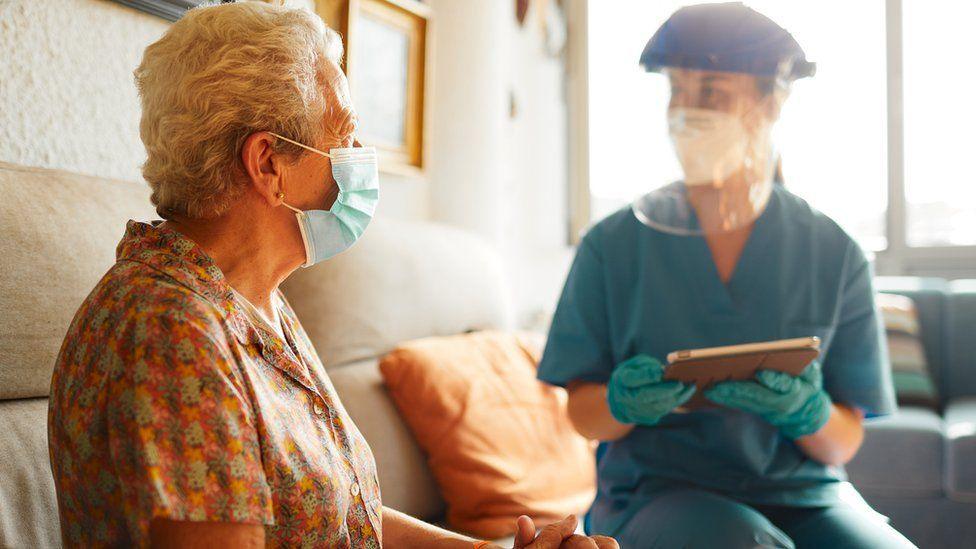Somerset care home staff continue working with Covid
- Published

Covid rates in Somerset have risen above the national average
Some care homes have "no choice" but to allow workers who have Covid to deliver care, a public health official said.
According to Public Health England cases are rising the fastest in Somerset.
As a result, care homes in the county are struggling to safely staff their services and schools are seeing a rise in staff sickness.
Somerset Council said ensuring vulnerable residents received care was "lower risk" than them being infected.
Health officials advised care workers to continue working only if they wore PPE and felt well enough.
Council public health consultant Alison Bell said: "In some cases, we have no choice but to have people who are testing positive delivering care to people in Somerset.
"That risk is actually less than that person not receiving care."
She said the Omicron variant was more transmissible and people were getting re-infected with it, some within a matter of weeks.
'Difficult to manage'
"The knock-on effect of there being so much Covid is that workers that we really need to deliver essential services are getting sick," Ms Bell added.
She said some schools in the county had had to go to remote learning due to an increase in staff sickness.
"Its really difficult to manage at the moment," she added.
Public health officials said the area's coronavirus figures within the last week were above the national average:
Somerset West and Taunton had 638 cases per 100,000 people.
North Somerset had 588 cases per 100,000 people.
South Somerset had 586 cases per 100,000 people.
Bath and North East Somerset had 474 cases per 100,000 people.
The England average was 465 cases per 100,000 people.
Ms Bell added: "If you have got symptoms, even though there's no legal requirement to self isolate, we'd ask people to think about staying at home so that we don't give the virus a chance to spread to other people."

Follow BBC West on Facebook, external, Twitter, external and Instagram, external. Send your story ideas to: bristol@bbc.co.uk , external
- Published15 March 2022
